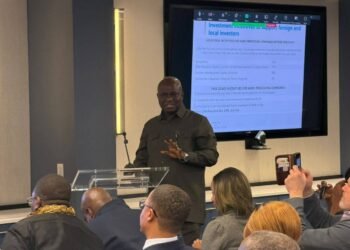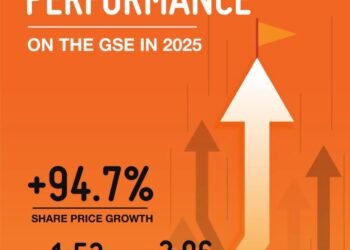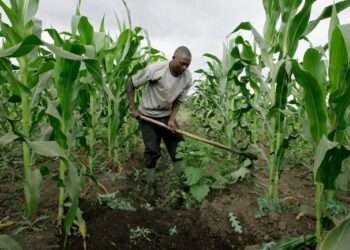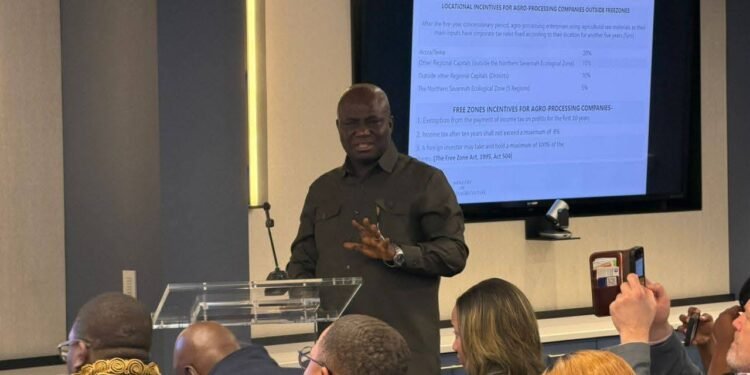Mr. Prince Addey, an Agricultural Economist, has disclosed that the skyrocketing fertilizer prices may gouge farmer profits. skyrocketing fertilizer
Speaking to the Vaultz news, He said that the record-breaking fertilizer prices are likely to decimate farmer profits and pull wealth out of rural communities for a handful of corporations that control the market.
According to Mr. Addey, a lot of fertilizer producing companies and suppliers are taking undue advantage of the Russia-Ukraine war to extract all of the money in the food chain by inflating their fertilizer prices, leaving nothing behind for the farmers at the grassroots level. “This action of fertilizer producers will only bankrupt farmers”, Mr. Addey added.
“The cost of fertilizer is going up, but crop prices aren’t, said Mr. Addey. Food processing companies and wholesalers of produce at the farmgate level aren’t paying more for crops, and consumer prices have been steady. That leaves farmers to absorb the higher fertilizer costs, which already is a major expense for farmers”.
Mr. Prince Addey- Agricultural Economist
The fertilizer industry also blames the price increases in natural gas used to make nitrogen fertilizer and supply chain issues due to COVID-19. According to Mr. Addey, when these industries only use basic supply and demand economic modeling to inflate fertilizer prices, it doesn’t give a clear understanding to the larger dynamics because the market is so heavily concentrated with other factors.

According to Mr. Addey, the government should go into Ghana’s food reserves to provide the excess of food stored in previous years to combat any food insecurity issues pending. Also, he mentioned that MoFA has trained farmers to rely heavily on inorganic fertilizers, hence the government should try to re-orient them to adapt to the usage of local resources like manure to fertilize their lands.
“Combined, Russia, and Ukraine account for a pretty large share of the production of things like natural gas and some fertilizers, as well as a greater of share of wheat production,” he said. Changes to commodity prices and input costs in the coming months will show the full effects of the conflict, according to Mr. Addey.
Whatever the causes, higher fertilizer prices will affect how farmers grow their crops. Farmers should switch to crops that need less fertilizer or use a “split fertilizer” strategy, which times fertilizer application to when crops are most capable of absorbing nutrients, according to Mr. Addey. Other strategies include crop breeding and regenerative agriculture, but these options take time. Whether prices remain high will determine the long-term strategies farmers use to decrease fertilizer dependency.
Even with these different practices, Mr. Addey said, some amount of fertilizer will still be essential to crop production. “Everybody needs to understand that farmers need fertilizer,” Mr. Addey said. According to Mr. Addey, the Ghana Meteorological Service has forecasted low rains which is likely to compound the already existing high fertilizer issues.
There is a looming national food security issue awaiting. It’s complex, but its complexity should not stop the government from supporting local fertilizer producers as well as devising sustainable strategies to combat the current hardships farmers are facing.
READ ALSO: Split Proposed Rate Of E-Levy Between Consumers And Telcos, Iea Urges Gov’t























